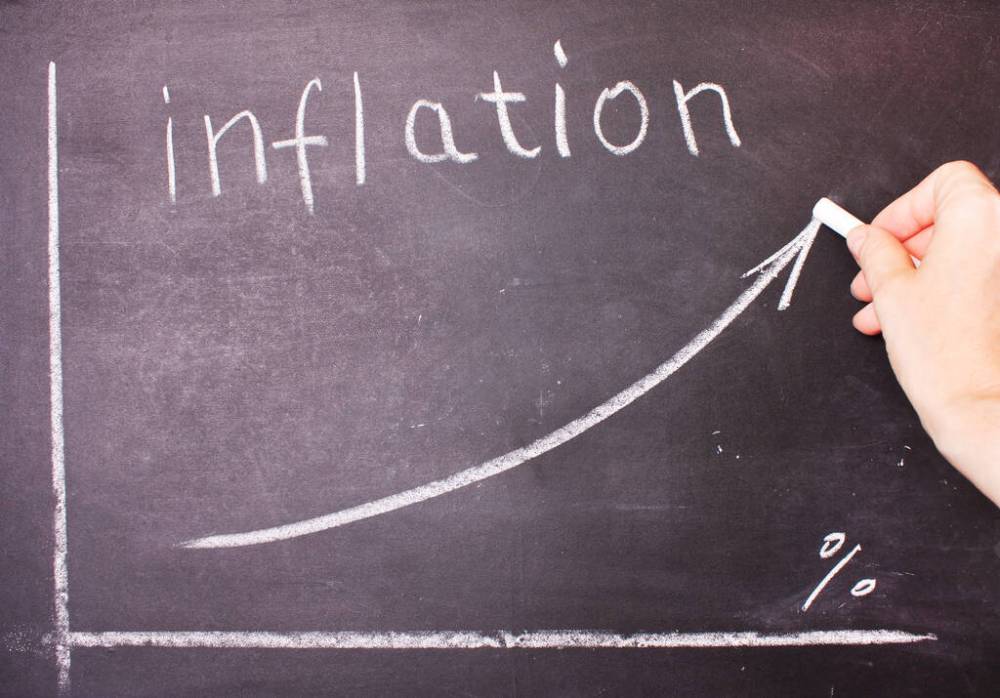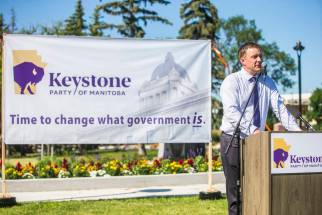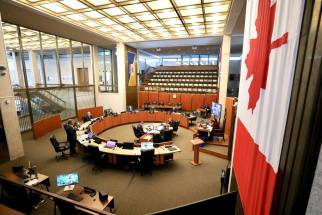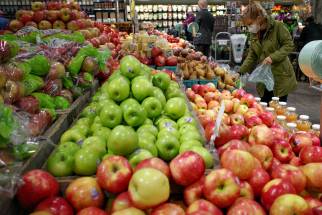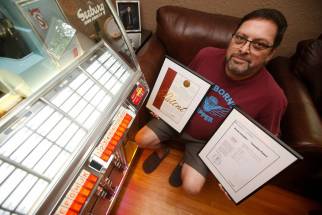Governments in ‘a real pickle’ Inflation is driving up the cost of living; here are some solutions, from both sides of the political spectrum
Read this article for free:
or
Already have an account? Log in here »
To continue reading, please subscribe:
Monthly Digital Subscription
$0 for the first 4 weeks*
- Enjoy unlimited reading on winnipegfreepress.com
- Read the E-Edition, our digital replica newspaper
- Access News Break, our award-winning app
- Play interactive puzzles
*No charge for 4 weeks then price increases to the regular rate of $19.00 plus GST every four weeks. Offer available to new and qualified returning subscribers only. Cancel any time.
Monthly Digital Subscription
$4.75/week*
- Enjoy unlimited reading on winnipegfreepress.com
- Read the E-Edition, our digital replica newspaper
- Access News Break, our award-winning app
- Play interactive puzzles
*Billed as $19 plus GST every four weeks. Cancel any time.
To continue reading, please subscribe:
Add Free Press access to your Brandon Sun subscription for only an additional
$1 for the first 4 weeks*
*Your next subscription payment will increase by $1.00 and you will be charged $16.99 plus GST for four weeks. After four weeks, your payment will increase to $23.99 plus GST every four weeks.
Read unlimited articles for free today:
or
Already have an account? Log in here »
Hey there, time traveller!
This article was published 15/07/2022 (1247 days ago), so information in it may no longer be current.
A Statistics Canada survey found that in late April, 75 per cent of Canadians had to change their spending habits to meet daily expenses. More than a quarter had resorted to borrowing from friends and relatives.
Since then, inflation has only worsened. So what can governments do about rising living costs? The Free Press spoke with economists and looked outside Manitoba for possible policy solutions.
Subsidizing gasoline
Canada is among the few industrialized countries that hasn’t subsidized the price of gas at the pumps, and the federal Liberals have dismissed the idea.
A week ago, Finance Minister Chrystia Freeland suggested more green energy would blunt the impact of fluctuating gas prices.
“This price increase in fuel costs is a reminder of why climate action is so important and why, as a country, we have to work even harder and move even faster towards a green economy,” she said.
“This price increase in fuel costs is a reminder of why climate action is so important and why, as a country, we have to work even harder and move even faster towards a green economy.” – Finance Minister Chrystia Freeland
Alberta and Ontario have lowered taxes they collect at fuel pumps to fund road repairs; that move has the same effect as a subsidy.
Economists have reservations about those policies, saying they risk pushing too much money into the economy.
“A better approach would be to target that money toward lower-income households and not help the Porsche Cayenne owner,” said David Macdonald, a senior economist with the left-leaning Canadian Centre for Policy Alternatives.
“Oil companies are already making record profits from this increase in oil prices; they don’t have to pass that (subsidy saving) on to consumers.”
Cash payments to individuals
Ahead of a fall election, the Quebec government is giving out $500 cheques to adults making less than $100,000, under the guise of an affordability program.
Yet economists say it won’t help fix inflation, as it puts more money into an economy that already has too much demand and not enough supply.
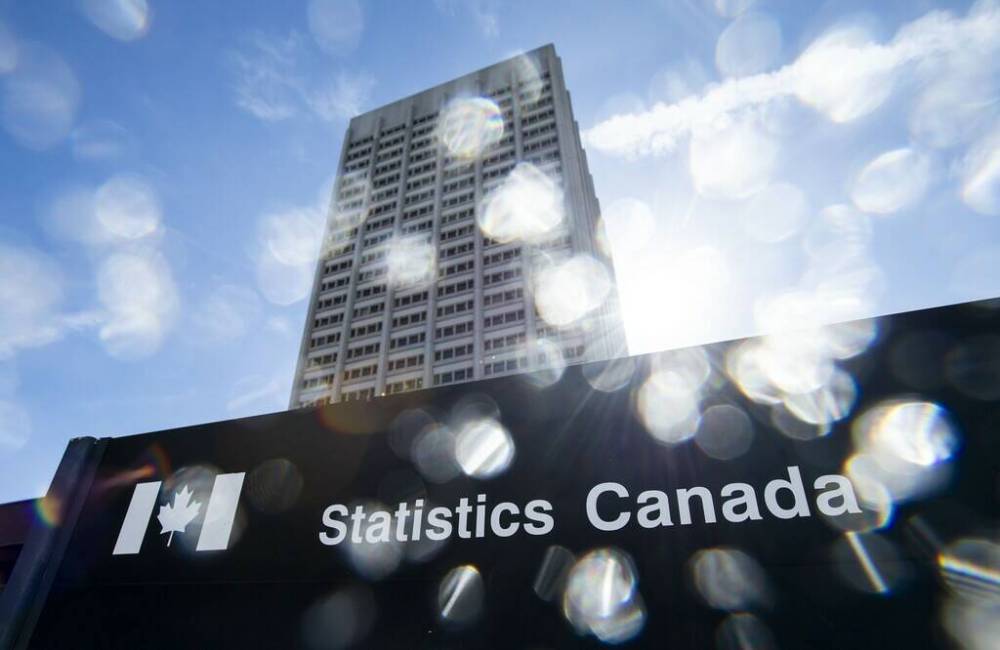
“It’s popular but it’s not a solution,” said Philip Cross, an economist who is the Munk Senior Fellow at the right-of-centre Macdonald-Laurier Institute.
“If they give people more money, it’s just going to aggravate the underlying problem.”
Macdonald argues Ottawa could instead send out cheques to people who received low-income GST rebates, as these are generally the poorest households in Canada.
“I’d be more in favour of something higher value, but better targeted.”
Premier Heather Stefanson’s government had long planned to issue an education-tax rebate; she now says that will help families with inflation.
Indexing welfare benefits to inflation
Most federal benefits are indexed to inflation, albeit with a months-long delay. But it’s a patchwork with provincial programs.
For example, Manitoba is among the majority who don’t index seniors benefits and child bonuses to inflation. And while Manitoba’s minimum wage and RentAssist payments are indexed to inflation, general welfare payments through Employment and Income Assistance are not.
“It means most people living on social assistance will see this year an eight per cent decrease in their ability to buy goods and services,” Macdonald said.
“It means most people living on social assistance will see this year an eight per cent decrease in their ability to buy goods and services.” – David Macdonald, economist
“Those are obvious things that provinces, in particular, can do to protect the lowest-income households.”
Cross said any boost to household incomes needs to be carefully crafted. Stipends to poorer households might work, but raising wages is another matter.
“You get into a wage-price spiral, where prices go up, people demand higher wages to offset it, which raises labour costs, and it just feeds on itself,” he said.
Reducing transit fares
In Germany, all monthly municipal transit passes have been reduced to nine euros ($12) for the three summer months.
The move was a concession to the Green party, which is part of a coalition government. It has resulted in more people taking transit, but also overcrowded trains that have annoyed longtime commuters.
Economists have debated the merits of these subsidies, saying it could get people to stop paying for gasoline, but only if rides are frequent and reliable.
Cutting child-care costs
Prime Minister Justin Trudeau’s government has a plan to make certain daycares offer $10 daily fees by 2026, starting by cutting 2020 rates in half by next March and later hiring more child-care aides. The Liberals are now rebranding this longstanding plan as an anti-inflation measure.
Economists say this will actually have a tangible impact on families with children under five years old, because child care is so pricey that it makes up a huge chunk of monthly expenses.
“It will more than offset the increases in gas and food,” said Macdonald.
“The issue is it’s a small slice of the population that has children from age zero to four… for everybody else, there’s no real impact.”
Excess-profit taxes
Usually a wartime economic policy, governments in Britain and the U.S. have previously charged industries and individuals who have made a windfall during a time of widespread hardship. The federal NDP has advocated for going after companies that have done well during the pandemic, such as the grocery giants.
Macdonald says recessions and their recovery periods tend to vary as to whether workers or corporations end up in a better spot. “But this time around, the corporate sector has come out… ahead of what we’ve seen in previous recessions, and certainly in comparison to workers.”
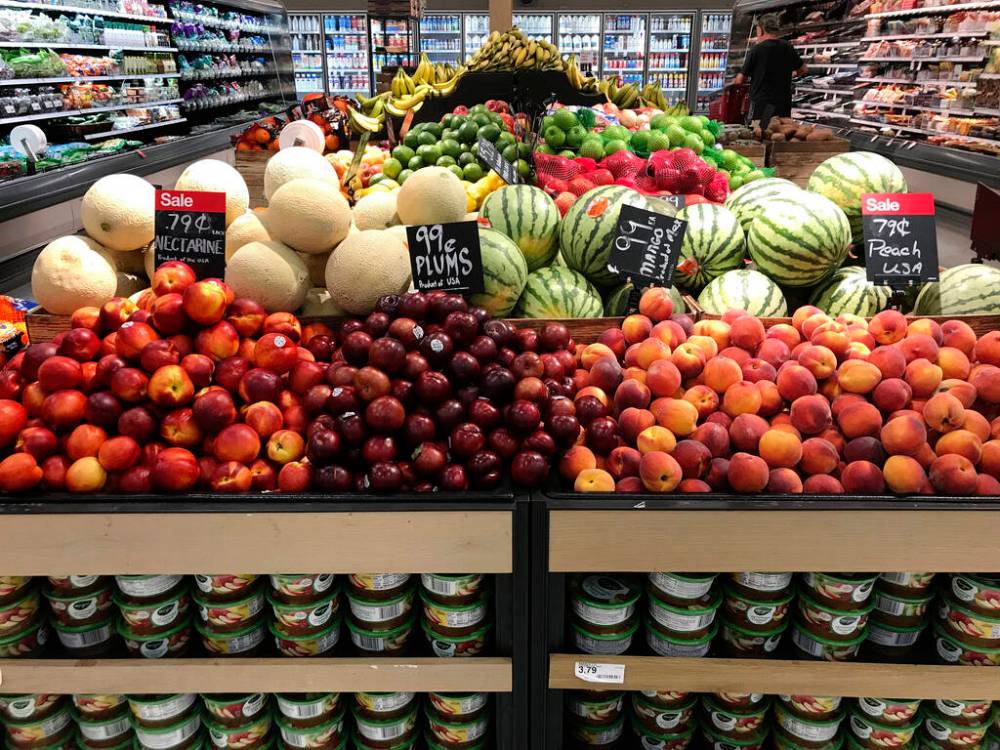
Letting the market course-correct
Cross notes that it’s not just corporations that have saved up — banks estimate Canadian households tucked away as much as $300 billion during the pandemic that they’re now eager to spend.
“We got into this mess because we gave people so much money during the pandemic,” Cross said.
“Demand is outstripping supply, and you can’t fix supply in the short run. We’re not going to produce more oil or food; that takes years.”
In his view, governments need to cut back on their spending, and let the market recalibrate itself by reining in demand.
“It’s a real pickle governments are in,” he said.
“Demand is outstripping supply, and you can’t fix supply in the short run. We’re not going to produce more oil or food; that takes years.” – Philip Cross, economist
He noted that the United States is facing nearly the same inflation rates as Canada. Some countries, such as Japan, have avoided debt problems by managing the pandemic with restrictions that didn’t freeze the economy but were kept in place longer, thus requiring less in emergency benefits.
Inflation is made worse by global trends, such as supply-chain issues in China, high oil prices stemming from the war in Ukraine and limited U.S. refining capacity. It leaves few tools in the hands of Canadian governments.
“The only real solution is to lower demand, and that means you would withdraw monetary or fiscal stimulus,” he said, arguing too many subsidies could stem a repeat of the 1970s, where prices rocketed and economic growth faltered.
“It’s painful, but I really don’t know of another solution.”
More competition
The federal Competition Bureau’s stated purpose is to increase competition in the marketplace, but doesn’t have a mandate to actually help consumers get better services or prices. The agency has recently proposed getting more powers, which could lead to bureaucrats compelling information from corporations and issuing higher fines for price-fixing.
Those moves could theoretically draw down the cost of cellphone bills, bank fees and groceries.
Governments could also get creative in the housing sphere.
Most provinces cap rent increases, though landlords can often find loopholes that are upheld by tenancy tribunals, including in Manitoba.
Meanwhile, Ottawa could revisit mortgage underwriting rules, to make it less profitable to buy up homes as investments, Macdonald said.
“Let’s use the tools we have, as opposed to trying to reinvent the wheel.”
dylan.robertson@freepress.mb.ca
